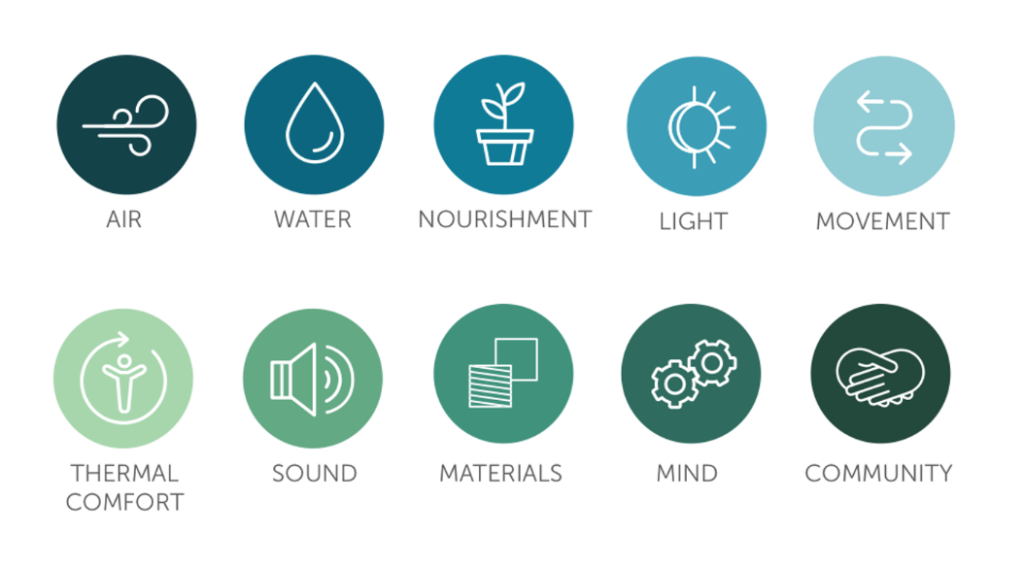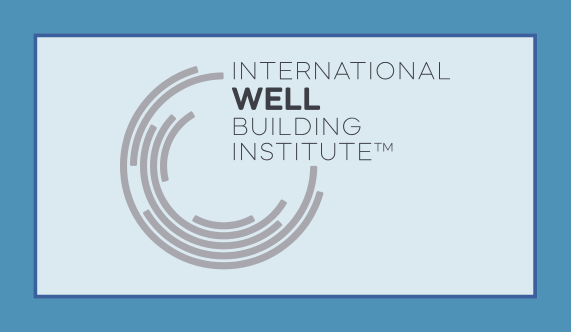HOW WELL CERTIFICATION WORKS
First released in 2014, the WELL Building Standard™ (WELL v1) focused on health in buildings. Then in 2021, WELL v2 took over.
Today, WELL v2 uses the latest science to improve air, water, light, and comfort. Moreover, it adds concepts for mind, nourishment, and community.
Evidence-based: Each requirement links design or policy to health outcomes.
Verifiable: Third-party checks confirm performance.
Implementable: Every strategy has real-world pilots.
Inclusive: Feedback from health experts and users shaped every update.
WHY WELL CERTIFICATION MATTERS
First, WELL Certification drives healthy standards in buildings. It shows tenants you care about their well-being. Next, it often aligns with Green Building goals such as LEED and Fitwel. Furthermore, it helps organizations attract and retain talent. Finally, it can boost property value and reduce absenteeism.
TEN CONCEPTS OF WELL V2
WELL v2 covers ten categories. Each concept contains prerequisites and optimizations.
- AIR: Improve indoor air quality.
- WATER: Ensure safe, clean drinking water.
- NOURISHMENT: Promote healthy eating habits.
- LIGHT: Optimize daylight and lighting design.
- MOVEMENT: Encourage physical activity.
- THERMAL COMFORT: Maintain ideal temperature and humidity.
- SOUND: Control noise to reduce stress.
- MATERIALS: Select low-toxicity, transparent products.
- MIND: Support mental health and stress reduction.
- COMMUNITY: Foster social connection and equity.

THE WELL CERTIFICATION PROCESS
Registration: Project teams enroll through GBCI.
Pre-conditions: Meet all core health requirements.
Optimizations: Pursue extra features for higher ratings.
Performance Verification: Tests and documentation confirm compliance.
Certification Levels:
Bronze: Meets all pre-conditions.
Silver, Gold, Platinum: Add optimizations (40–80 points).
Also, WELL Core serves tenant-occupied buildings over 75% leased. It offers flexible prerequisites without minimum optimizations.
BUSINESS BENEFITS OF WELL CERTIFICATION
Research shows that WELL Certification supports strong business returns:
- 7.7% higher rents in certified healthy buildings.
- $115/sq ft 10-year net present value for high-performance spaces.
- 8% productivity gains linked to better air quality.
Thus, WELL Certification makes both health and financial sense.
THE FUTURE OF WELL CERTIFICATION
As evidence and standards evolve, WELL stays current. Indeed, its resilience principle ensures updates with new research. Consequently, buildings certified today remain future-ready. Over 5 billion sq ft in 130 countries now follow WELL. This demonstrates global demand for healthy, human-centered spaces.

